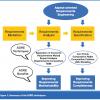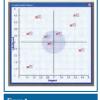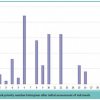 |
Taming the Headless Beast: A Proven Strategy for Testing Web Services The benefits of Web services are becoming widely demonstrated and accepted. However, these benefits are not without their own challenges. How can you enter data and verify the response of a system without a GUI? Are you ready to tame this headless beast? |
|
|
|
Go, Team! Fed up with good-ol'-boy salesmen, a manufacturing mindset, and just-get-it-out-the-door directions? A little assertiveness, a few ounces of patience, a dash of charm, a lot of leadership, and some attitude adjustment by everyone might help. Read how one manager made the world a better place to work one small victory at a time. |
|
 |
The Ghost of a Codebase Past Revisiting your old code can be an enlightening experience. Pete Goodliffe encourages us to look back at our old code to see how our technique has improved, how our programming skills have progressed, and what we can learn from it. |
|
|
Are Your Pants on Fire, or Do You Suffer from Split Focus? Some schedule games—Split Focus and Pants on Fire—are the result of your management not making certain decisions about the project portfolio. Without those decisions, your project has problems. In this column, Johanna Rothman explains what you can do when the problems on your project are caused by your management’s lack of decision making. |
||
|
The TSA and Software Quality As evidenced by news stories relating blatant failures on the part of the Transportation Security Administration, many organizations fail to learn much from the information testing provides. What can we do to improve the quality of our measurements so we can learn valuable lessons from the results? |
||
 |
Building a Foundation for Structured Requirements: Aspect-Oriented Engineering Explained (Part 1) Aspect-oriented requirements engineering (AORE) is a new methodology that can help us improve the analysis, structure, and cost of development of software requirements. AORE does not replace but rather complements any of the existing requirements methodologies. This two-part paper explains to software practitioners the AORE concept, illustrates how it can be applied on software projects, and discusses the benefits of AORE. Part I focuses on the AORE analysis techniques. |
Yuri Chernak
December 30, 2008 |
|
The Kanban Primer: A Cultural Evolution in Software Kanban,a Japanese word meaning “signal card,” introduces a new way to think about software development. Through signaling, a limit is set on work in progress resulting in a system that is never overloaded. Kanban signals do not need to be based on passing physical cards; any virtual signaling mechanism will do equally well. |
||
 |
Risk-based Testing in Action Risk-based testing allows project teams to focus their limited test efforts on the areas of the product that really matter, based on the likelihood of bugs in those areas and the impact of bugs should they exist. By using risk priority to sequence test cases and allocate test effort, test teams can also increase their chances of finding bugs in priority order and allow for risk-based test triage if necessary. |
Rex Black
December 30, 2008 |
|
|
A Path to Readable Code Test-driven development is usually presented as a developer process. On the other hand, acceptance test-driven development (ATDD) is a communication process between the customer and the developer. In ATDD, the tests provide the terminology in customer-understandable terms. The customer's terminology suggests abstract data types that make code more readable. |
|
|
Lucky and Smart Charles Darwin was certainly a great scientist, but his career and his discoveries were also strongly influenced by serendipity and luck. What could this great explorer and scientist teach us about testing? |
Pages
Upcoming Events
| Jun 02 |
AI Con USA Bridging Minds and Machines |
| Sep 22 |
STARWEST Software Testing Conference in Anaheim & Online |
| Oct 13 |
Agile + DevOps USA The Conference for Agile and DevOps Professionals |
Recommended Web Seminars
| May 23 | How Generative AI Boosts Speed and Quality in Software Testing |
| On Demand | Building Confidence in Your Automation |
| On Demand | Leveraging Open Source Tools for DevSecOps |
| On Demand | Five Reasons Why Agile Isn't Working |
| On Demand | Building a Stellar Team |











